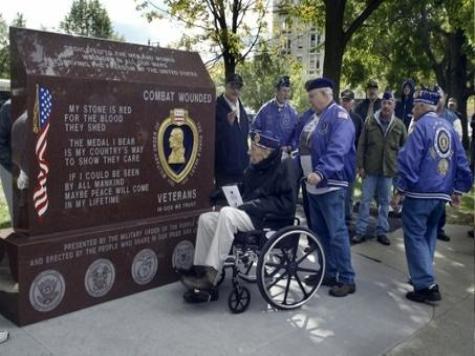A study of over 10,000 veterans from WWII and Korea conducted by the Veterans Administration concluded that soldiers awarded the Purple Heart (PH) outlived their comrades who did not receive the medal. They compared mortality rates of those who received a PH and have post traumatic stress disorder (PTSD) with those who received a PH and were not diagnosed with PTSD. They found that veterans with a PH who lived beyond the age of 70 “had half the mortality rate of veterans without PH citations with or without PTSD.” The study also concluded that veterans with PTSD without a PH have “a significantly higher mortality rate” than those with neither.
In other words if you have received a PH you will live longer than your comrade that did not receive the PH. If you have PTSD and have a PH your life expectancy is also increased. So it would appear that having a PH confers some kind of immunity against an early death.
This study could be the beginning of learning how to identify those personalities who are more susceptible to PTSD. When that is possible those joining the military who are identified as being predisposed to developing PTSD could be prevented from serving in a combat arms unit.
There has always been a battery of tests known as the “Armed Services Vocational Aptitude Battery” (ASVAB) given to those who join the Army. There are already psychological written tests used by psychologists and psychiatrists to help identify specific psychological disorders. These tests can identify borderline personality disorders as well as other more serious psychiatric illnesses. Certainly developing a test to identify those more susceptible to PTSD cannot be far off.
In the past shell shock, battle fatigue, combat neurosis, and war neurosis, were terms used to describe those soldiers who developed psychological problems after the stress of battle. These terms had a negative connotation, as you may have noted if you saw the movie “Patton.” A soldier in the 93rd Evac Hospital told General Patton that he didn’t want to go back to the front by saying, “I can’t stand the shelling it’s my nerves.” Whereupon the General slaps the soldier and calls him a coward.
Today PTSD still has somewhat of a negative connotation. This month there was a hearing by a group of psychiatrists to change the name from Post Traumatic Stress Disorder to Post Traumatic Stress Injury. The reason being that “the word ‘injury’ suggests that people can heal with treatment. A ‘disorder’, meanwhile, implies that something is permanently wrong.” One of the arguments about changing the name is “that PTSD is the only mental illness that must be caused by an outside force.”
Presently the Military and the Veterans Administration are overwhelmed with service members who have been diagnosed with PTSD. The Army has experienced and 80% increase in the suicide rate between 2004 and 2008. Mental health conditions like PTSD, depression, anxiety, all contribute to that increase. Identifying those individuals who may be more predisposed to develop PTSD will be a welcome relief for our military.
There are several charities that are trying to fill the void by helping those with PTSD:
The Intrepid Fallen Heroes Fund, www.fallenheroesfund.org
Injured Marine Semper Fi Fund, www.semperfifund.org
Patriot Outreach, www.patriotoutreach.org
Gift From Within, www.giftfromwithin.org
For those interested in learning more about PTSD or those who suspect they may suffer from it, there is a free booklet at the National Institute of Mental Health website. The book explains how to get help, treatment options and the definition of PTSD.

COMMENTS
Please let us know if you're having issues with commenting.